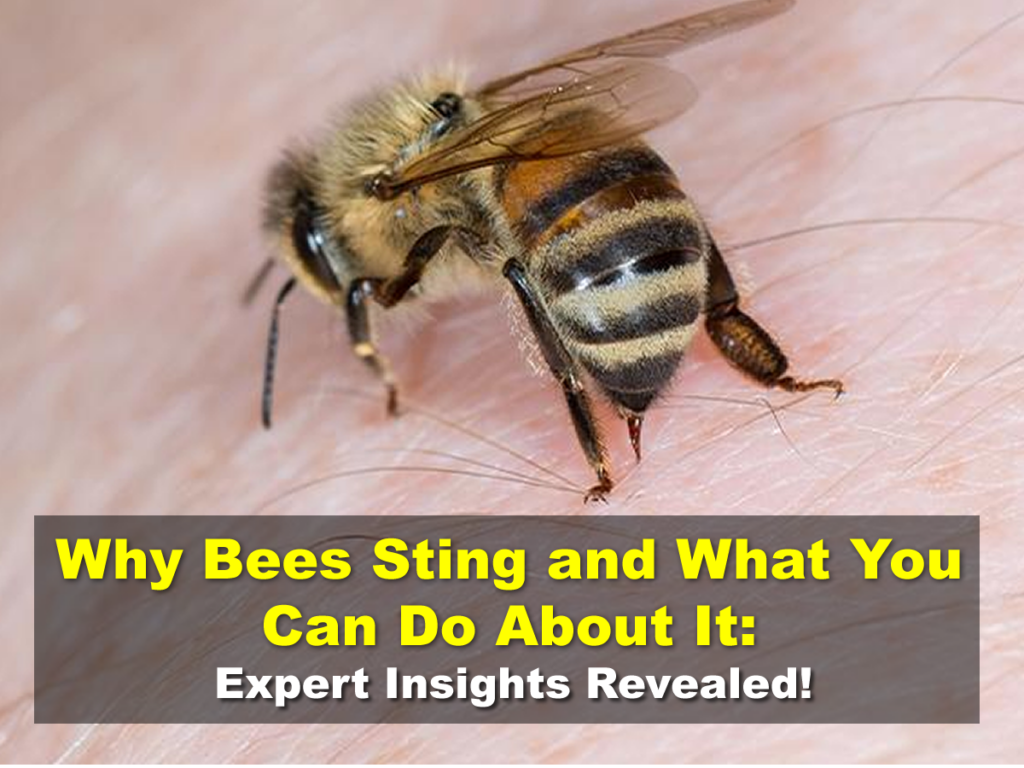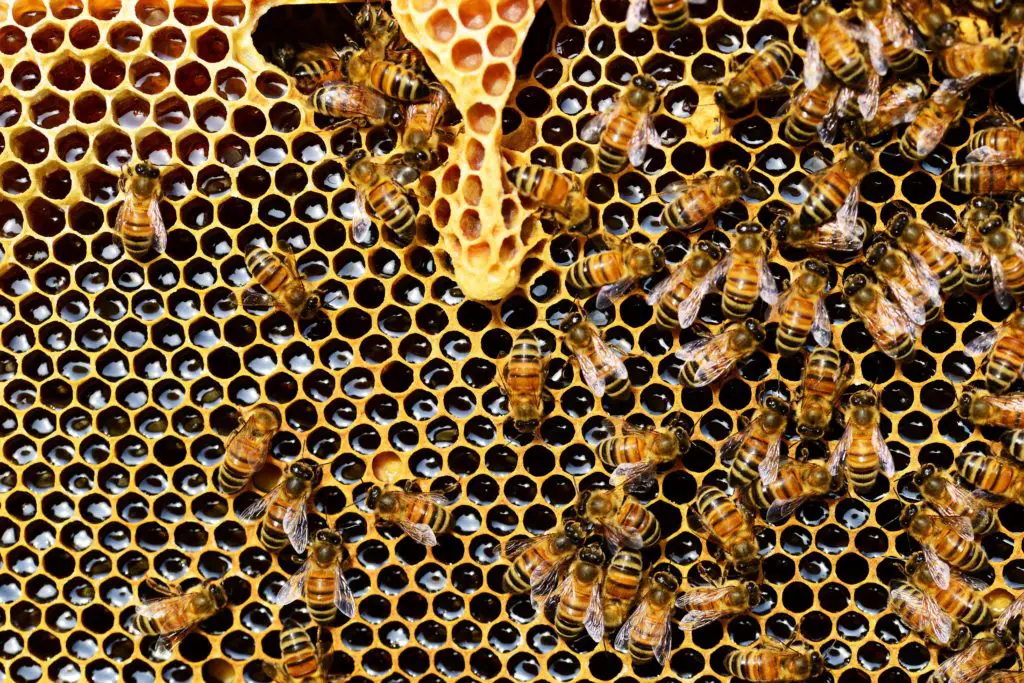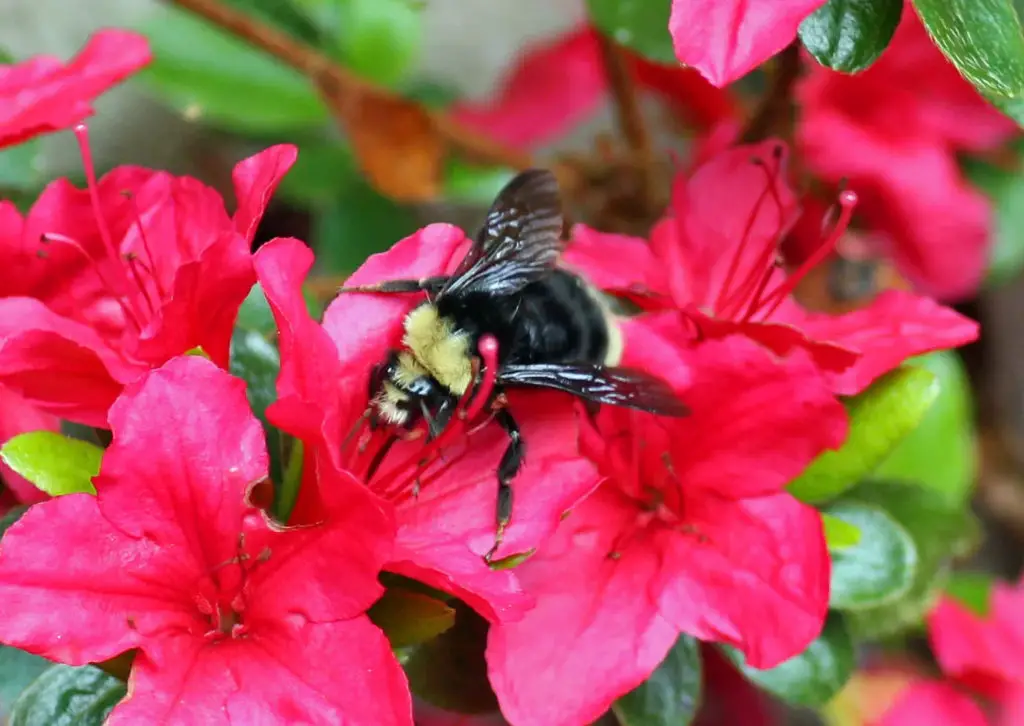Affiliate Disclaimer - As an Amazon Associate I earn from qualifying purchases.
It supports the website. So, Thank you
Being out in nature means that we are in close contact with a whole host of critters. Bees are incredibly common, not to mention important but a lot of people are scared of them because of their ability to sting. But why do bees sting and is there anything we can do to avoid being the next victim?
Bees sting as a form of self-defense. In most bee species, stings will only occur when they are trying to protect their nest. Otherwise, bees are very docile creatures.
As humans, it can be easy to point the finger at bees and suggest that they sting for no reason. But this is rarely the case. There are some bee species that are more aggressive than others but in the United States, you’re unlikely to come across them.
Table of Contents
What Are The Main Reasons That Bees Sting?
Animals all over planet earth have a variety of interesting defense mechanisms. Some bite and inject venom, others squirt ink, and some have sharp claws or horns for fighting. The humble bee has a stinger and it’ll generally only use it when it feels threatened.
What’s more, a bee may sting a human who gets too close to the nest. The bee’s nest is a very valuable place that provides a store for food, shelter, and a place to raise their young. With tens of thousands of bees in a hive, it’s no wonder they’re keen to protect it.
In some cases, honey bees will guard their nest and sting any potential threat as a way of deterring them from coming any closer. What you need to watch out for, however, is an onslaught of bees coming to aid the original stinger.
You see when bees sting, they release an alarm pheromone that tells others in the colony that there is danger. They’ll then all come to the rescue and attack whoever is unlucky enough to be standing nearby.
With all that said, I have to stress that bees aren’t generally aggressive animals. Just like any other creature, they’ll defend themselves but it’s not something they want to do. What’s more, despite what many people believe, bees will not actively seek out humans to sting them. If anything, they’d rather be left alone to get on with collecting nectar and honey.
Which Bees Are The Most Aggressive And Dangerous?
In the United States, some of the most common bee species include the honey bee, the bumble bee and the carpenter bee. All of these species are pretty calm and won’t attack humans without good reason.
However, the Africanized killer bee is one of the most aggressive bee species in the world and has been known to attack for seemingly no reason. What makes them so dangerous is not only their aggressive nature but also the fact that they attack as a colony.
Just like other types of bees, they are more likely to attack when defending their nest but what makes them worse is that they will swarm for much longer distances making it more difficult to get away. There are even stories of people jumping into water to escape a swarm of Africanized bees only to find that, upon surfacing, the bees have waited for them!
While these bees are not native to America, they have been introduced here. They’re not as common as other species but can be confused with the honey bee owing to their similar appearance. In any case, regardless of the species, it’s best just to let bees get on with their business and watch from afar.
Bee Stings And Children
The last thing I want for my children is for them to suffer a painful sting. However, children are some of the most common victims of bee stings and this usually happens because they will provoke them.
Kids don’t do this out of naughtiness but rather curiosity. When they see a bee, it’s of interest to them and young children don’t understand the risks of handling bees so they’re quite likely to attempt to pick it up or poke it.
Of course, the bee doesn’t want this type of attention and will feel threatened. What’s more, when children are playing outdoors, it’s not uncommon for them to step on a bee without shoes on and get a nasty sting in the foot.
The best way to protect children from bee stings is to educate them. It’s vital not to make them afraid of bees as this will affect their ability to enjoy outdoor play. However, it’s worth parents pointing out that bees don’t like to be upset and may sting if they are.
Encourage your child to observe bees without touching or getting too close. This way, you can educate them about nature without any risks.
I’ve also seen some children interfering with beehives. This could be by throwing stones at them to get the bees’ attention, rocking the hive, or otherwise messing with it. Without our input, children won’t understand the danger associated with this so it’s essential for adults to teach them.
While a child may simply be intrigued by the hive, they don’t realize that this could aggravate an entire colony of tens of thousands of individuals which could lead to the child being chased and stung multiple times.
How To Avoid Being Stung By A Bee
Nobody wants to get stung by a bee and there are some people who even have a severe allergy which could put them in hospital or even be fatal. While sometimes, it is unavoidable to have a run-in with nature, there are things you can do to prevent bee stings as much as possible.
If you accidentally upset a bee, or even a colony, swatting at these insects isn’t going to make things any better. In fact, this will only anger them more as will any other sudden or threatening movements.
What’s more, it’s best to keep as far away from bee hives and nests as possible. Unless you’re a beekeeper, there’s really no need for you to get too close as all this is going to do is upset the bees.
Being in the general vicinity of bees means there is a greater chance you might upset them and cause them to sting. Therefore, it makes sense to do everything you can not to attract them. Things like heavy perfumes (especially those with floral scents) can attract bees as they want to investigate. Uncovered food and sweet drinks left outdoors will serve as a huge attraction to bees so make sure not to leave things lying around.
Final Thoughts
Bees are not usually aggressive creatures and will normally fly around your garden collecting pollen before moving on as if they were never there.
But there’s no denying that they can and do sting and this leads us to wonder why do bees sting.
The main reason for this is a method of self-defense. However, bees will only employ this when they feel threatened. As long as you are respectful of their space and don’t show them any threat, they’ll leave you alone and you can live alongside one another in peace.




